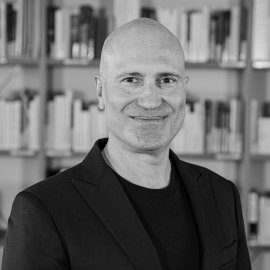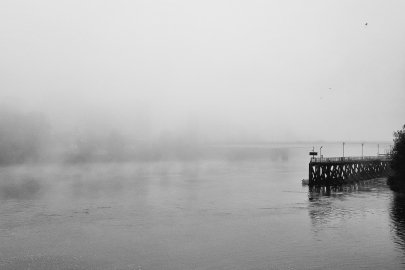
Septembre 2023 à juin 2024
The New York Times calls Ali Hossaini ‘a biochemist turned philosopher turned television producer turned visual poet’.
Ali Hossaini is Visiting Senior Research Fellow in Engineering at King’s College London, a Principal Investigator of the Health & Social Equity Collective, and co-director of National Gallery X, a founding partner of the UKRI Trustworthy Autonomous Systems Hub. His artworks have been presented worldwide in venues such as BAM, the Kennedy Center, the Barbican and City of London Guildhall. He is the digital architect of the EIT Culture & Creativity KIC.
With UK security thinktank RUSI, he has reflected on AI by hosting conferences, editing its journal, and modeling potential threats from the perspective of biology. Ericsson named him a 5G Trailblazer in 2020 and 2022. He served in IEEE 7000 and IEEE 7001 working groups for ethical design of AI, and currently serves on the IEEE P2731 working group for brain-computer interface and European Public Policy Committee for ICT (Information & Communications Technology) of the IEEE.
Towards a Culture of Ecology
The mismatch between human society and nature has never been greater. Since the beginning of civilization, humans have engineered progressively larger ecological disasters, and, though many speak against it, we now threaten the integrity of the global ecosystem.
Ali Hossaini starts with a question: why can’t we do the right thing? Rather then argue for better engineering, he critiques our conception of life, the science of biology, from the standpoint of Ludwig van Bertalanffy’s general systems theory and the theory of organisms advanced by Ana Soto, Giuseppe Longo, Denis Noble and other contemporary biologists.
Evolutionary genetics frames humanity’s perspective on life, but the Modern Synthesis which underlies dominant explanations for evolution is causally impoverished. The Modern Synthesis and its later interpretations emphasize information, and they cannot account for the entire phenomena of life, nor do they provide a foundation for safe geoengineering. We see things going wrong, but not everyone is convinced, and the path to ecological sustainability lacks clarity. In another era, this debate could be academic, but, in the Anthropocene, and a looming global catastrophe, it becomes urgent.
This project will apply the theory of organisms to a range of existential challenges, notably ecological destruction, the regulation of industry, and perceived threats from AI. Then it aims to describe how a culture of ecology, enriched by a full range of biological principles, can enable humanity to make better collective choices.
· HOSSAINI, Ali. 'A Culture of Ecology: Towards a 21st Century Renaissance' in The Next Renaissance. Éditions Odile Jacob. 2022.
· HOSSAINI, Ali. ‘Electric Animal’. In The Work of Art in the Age of Planetary Destruction, University College London, forthcoming 2023.
· HOSSAINI, Ali, The Power of X: How museums can drive innovation, Rowman & Littlefield, forthcoming 2024.
· HOSSAINI, Ali.(CA), GINGRICH, Olive, RAHMAN, Shama, GRIERSON, Mick, Murr, Joshua, CHAMBERLAIN, Alain. ‘Groupthink: Telepresence an agency during live performance’. Proceedings of the ACM on Computer Graphics and Interactive Techniques. 2022. https://doi.org/10.1145/3533610
· HOSSAINI, Ali. (CA), VALERIANI, Davide, NAM, Chang S., FERRANTE, Rafael, MAHMUD, M. (2021) ‘A Functional BCI Model by the P2731 working group: Physiology, Brain-Computer Interfaces’, 8:3, 54-81, DOI: 10.1080/2326263X.2021.1968665
